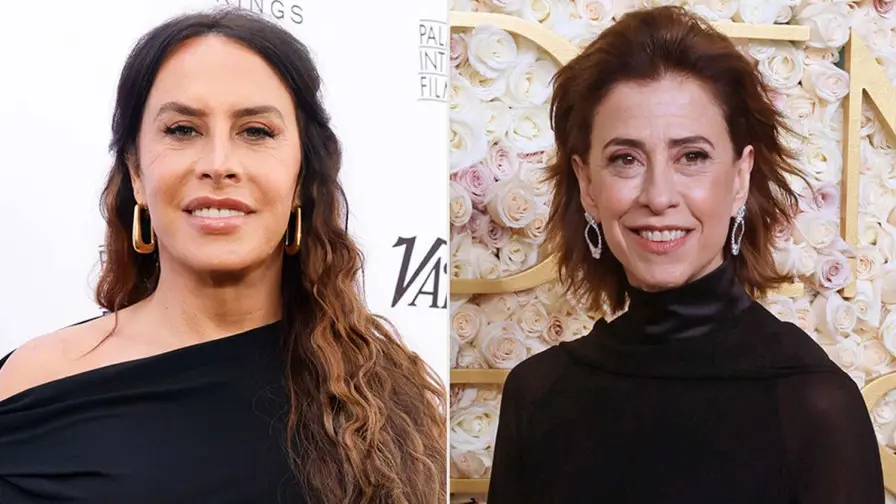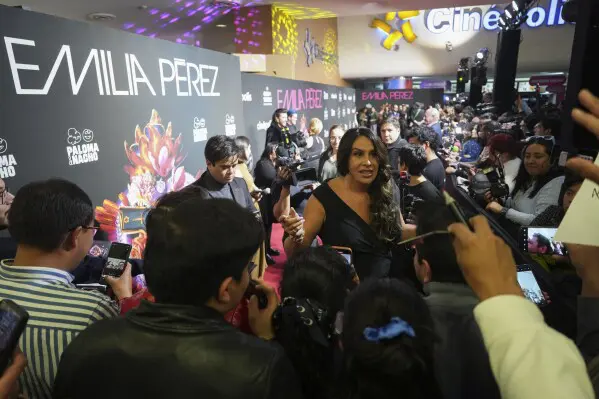Karla Sofía Gascón, the lead actress in the acclaimed film ‘Emilia Pérez’, has recently found herself at the center of a cultural maelstrom, igniting heated debates across social media. As discussions swirl around her controversial remarks on social issues, including Islamic culture, the George Floyd incident, and diversity at the Oscars, the artist’s social media activity has gone viral, eliciting both praise and outrage.
Social media users have responded fervently, capturing the intricate dynamics of race, religion, and representation in Hollywood today. With her unique position as a trailblazer—the first openly transgender person nominated for an Oscar—Gascón’s posts have brought attention to conflicting narratives about acceptance and societal values. In this environment, the repercussions of public statements can swiftly resonate across communities, leading to both backlash and solidarity. It’s a testament to the authority celebrities have in shaping public opinion and how easily that influence can be contested.
The Impact of Social Media on Celebrity Discourse
With the rise of social media platforms like X, Instagram, and TikTok, celebrities’ voices have amplified in unprecedented ways. One misstep can rapidly spiral into a viral sensation, highlighting today’s digital landscape where one tweet or post can alter perceptions overnight. Gascón’s controversial statements reflecting on Islam and its place in society illuminates how discussions on sensitive topics can lead to widespread debates on equality and acceptance.
Her remarks, particularly those regarding perceptions of the Muslim community, reveal the undercurrents of social tension. While some argue that transparency in thoughts should be celebrated, others question the implications of free speech, especially when it appears to foster inequality or hatred. Gascón’s detractors allege that her posts sexualize Islam and disregard the fundamental values of diversity and dignity, important tenets in modern discourse.

The George Floyd Incident and Its Consequences in Society
The George Floyd incident was a pivotal moment that highlighted systemic racism and the ongoing struggle for equality in America. Gascón’s reflections on this tragedy, calling Floyd a ”drug addict swindler”, showcases the complexities of individual experiences and how far people have veered from elements of compassion during heated debates.
This perspective invites a deeper discussion about the nature of public figures and their responsibilities. What should be the ethical framework guiding celebrities as they navigate sensitive subjects like race and justice? Gascón’s commentary raises questions about whether her opinion resounds with truth or merely reflects her own biases.
Diversity and Representation at the Oscars
The Academy Awards have long been a contentious venue for discussing race and representation, presenting an ongoing challenge ferociously remarked upon by Gascón and others. With her nomination for ‘Emilia Pérez’, she joins the ranks of artists pushing for visibility. Yet, her critiques of the Oscars as having turned into a ‘ceremony for independent films’ raise eyebrows about Hollywood’s commitment to true diversity.
What does it mean when a historically exclusionary event touts nominations for marginalized creators while facing backlash for the same? Gascón’s comments, suggesting a disconnect between the ceremony and reality, encourage audiences to reflect on the validity of the Oscars’ efforts towards inclusivity.

Examining Hollywood’s Response to Diversity Concerns
Insistent narratives about diversity draw attention to the struggle for authentic representation within Hollywood. The entertainment industry has seen various movements rallying for equitable treatment of underrepresented groups, yet real change often feels agonizingly slow. Gascón’s comments fuel urgent conversations about a fragile yet critical evolution.
As audiences, we must interrogate the effectiveness of these gestures towards diversity. Are such acts substantive actions, or simply public relations maneuvers? Gascón’s critiques offer a provocative lens on the extent to which institutions genuinely seek to address inequities versus perpetuating systems that uphold traditional values of systemic imbalance.
Karla Sofía Gascón’s Past Posts and the Fallout
In the wake of her viral statements, many followers and fans have dug through Gascón’s past social media posts, highlighting a problematic history. This scrutiny emphasizes the need for public figures to maintain accountability as they navigate fame. Spanning years, these posts reflect a deep-seated frustration toward societal issues, but they also reveal a tussle between private beliefs and public personas.
Social media acts as a double-edged sword, offering a platform for authenticity while exposing flaws that can haunt public figures. Gascón’s reflection on faith and humanity serves as a lesson in the duality of online presence.

Public Reactions: Division and Support
The reactions to Gascón’s posts have spurred a division that reflects society’s ongoing contention with multiculturalism and acceptance. Her supporters argue for a nuanced understanding of her views, while opponents vehemently critique her for what they describe as harmful rhetoric.
This division illustrates the complexities of empathy in cultural conversations. Supporters rally behind Gascón’s groundbreaking nomination while simultaneously denouncing her controversial views. In navigating such a charged landscape, it becomes increasingly difficult to foster dialogue without downplaying significant grievances.
Conclusion: Navigating the Turbulent Waters of Celebrity Activism
The current cultural moment presents a unique challenge for Gascón and her peers as they seek to engage with societal issues while remaining publicly accountable. As pioneers in the narrative of marginalized communities, the responsibility lies heavily on their shoulders.
It’s paramount for such influential figures to understand the intersection of public discourse, identity, and representation, realizing that one misjudged comment can bring backlash, or perhaps engender a constructive dialogue.
Hi, I’m Sarah, a 30-year-old journalist with a passion for storytelling and uncovering the truth. I strive to bring important issues to light and connect with my audience through compelling narratives.



